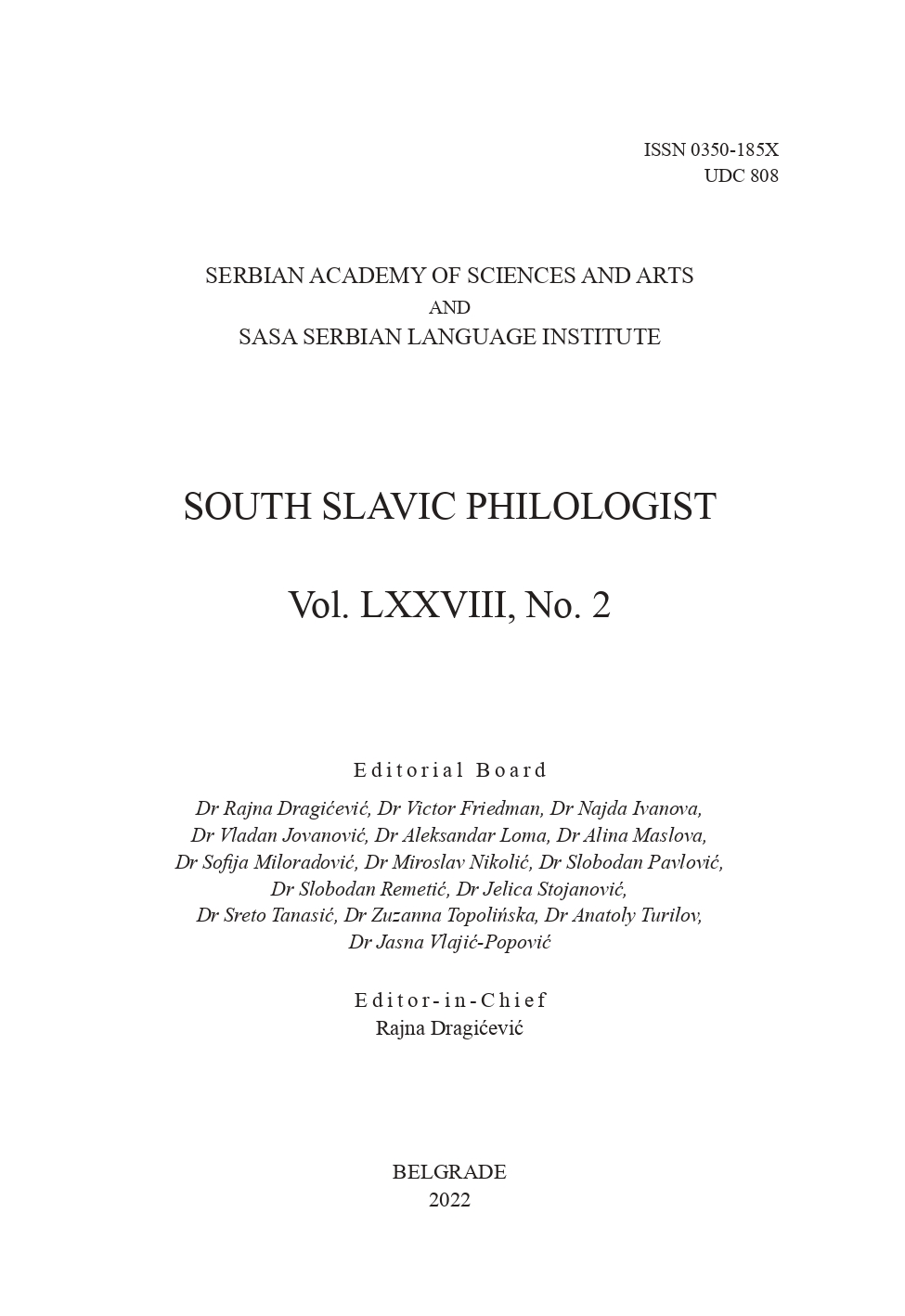РЕЧЕНИЦЕ СА ВРЕМЕНСКОМ КЛАУЗОМ У ГОВОРУ ПРИЗРЕНСКОГ ПОДГОРА
SENTENCES WHICH CONTAIN TEMPORAL CLAUSES IN THE VERNACULAR OF THE PRIZREN PODGOR
Author(s): Radivoje MladenovićSubject(s): Syntax, Lexis, South Slavic Languages
Published by: Институт за српски језик Српске академије наука и уметности
Keywords: the Prizren-South Morava vernacular; Prizren Podgor; sentences with temporal clauses; conjunctions; compound conjunctions; optional negation
Summary/Abstract: This paper analyzes sentences which contain temporal clauses, used in the Prizren-South Morava vernacular of the Prizren Podgor, a group of 17 settlements in the southern uplands of the Metohija basin. A distinctive feature of temporal clauses in this vernacular are the following conjunctions and compound conjunctions: kêd, dok / dokl’e(n) / dokl’e(n) god, čim, kako / ka, a, otkêd; pred da, pred što, sal što / samo što. It turned out that the conjunction kêd has the widest range of meanings in temporal clauses due to its semantic unmarkedness, because other conjunctions (compound conjunctions included) are semantically marked. The conjunctions pošto, nakon što, tek što, pre nego/no što, pre nego da and otkako are not attested. Temporal clauses are pre-positioned in the majority of the attested examples. Semantic variation of sentences containing temporal clauses were considered in terms of the conjunctions and compound conjunctions used in them. The corpus shows that constructions without optional negation dominate in the sentences with the imperfect verb in the main clause and perfect verb in the temporal clause, while there are few attested examples with negation, which removes the Podgor vernacular from the modern use of the language. This feature makes the Podgor vernacular part of a bigger balkanized Balkan-Slavic area. The absence of negation testifies that semantics prevailed over grammar, which Balkan-wise stabilizes a simpler model in which negation is omitted, which in fact does not negate the predication of the temporal clause
Journal: Јужнословенски филолог
- Issue Year: 78/2022
- Issue No: 2
- Page Range: 369-382
- Page Count: 14
- Language: Serbian

